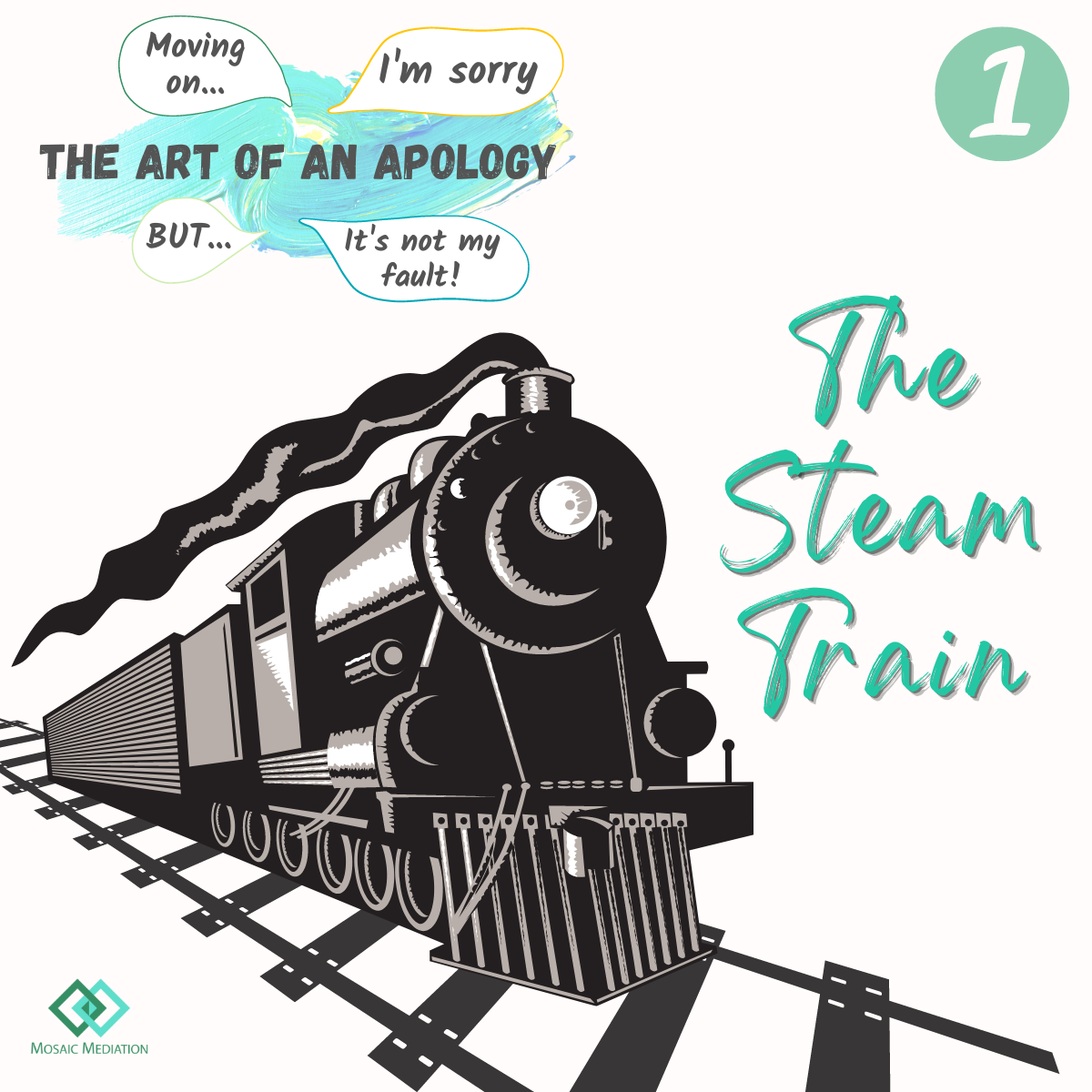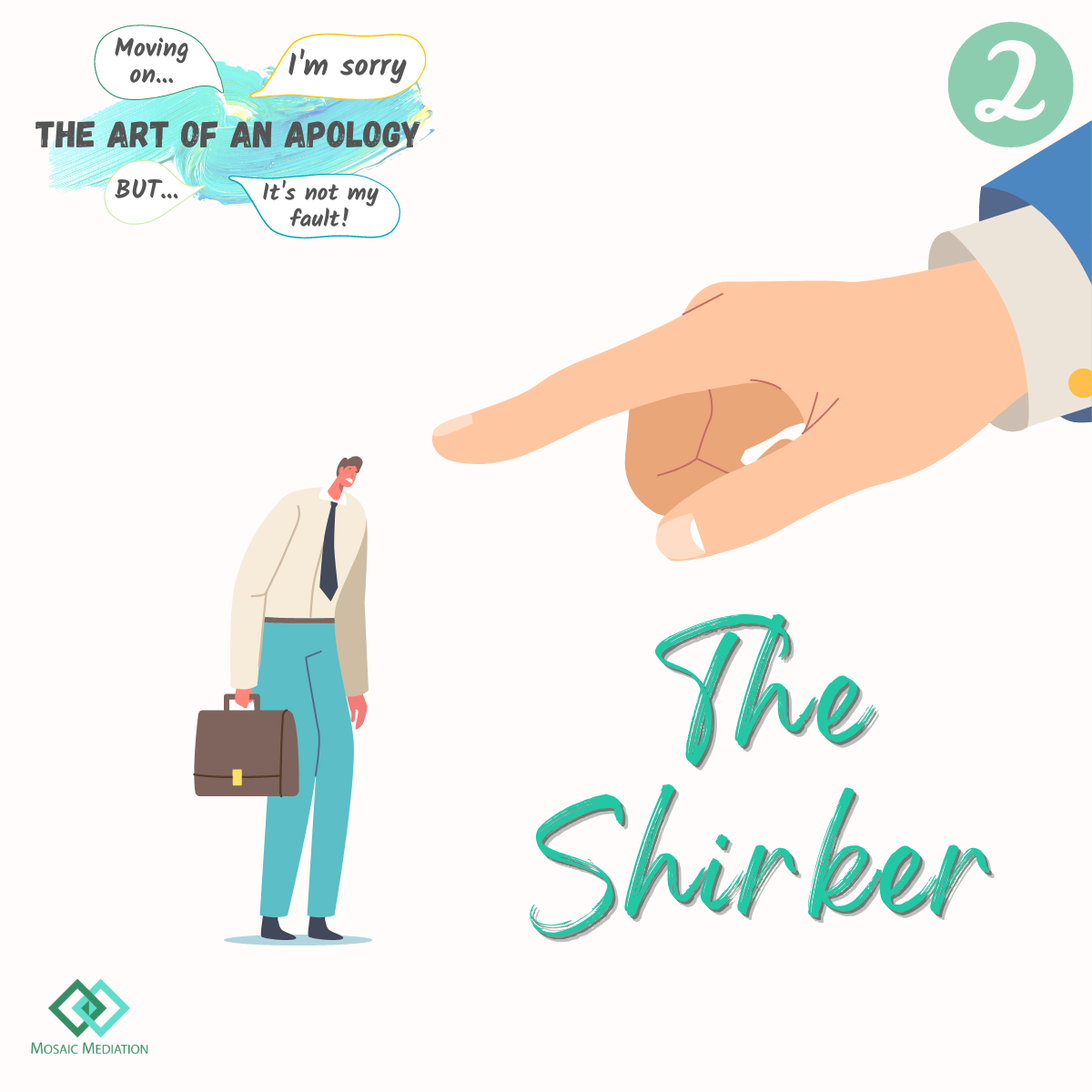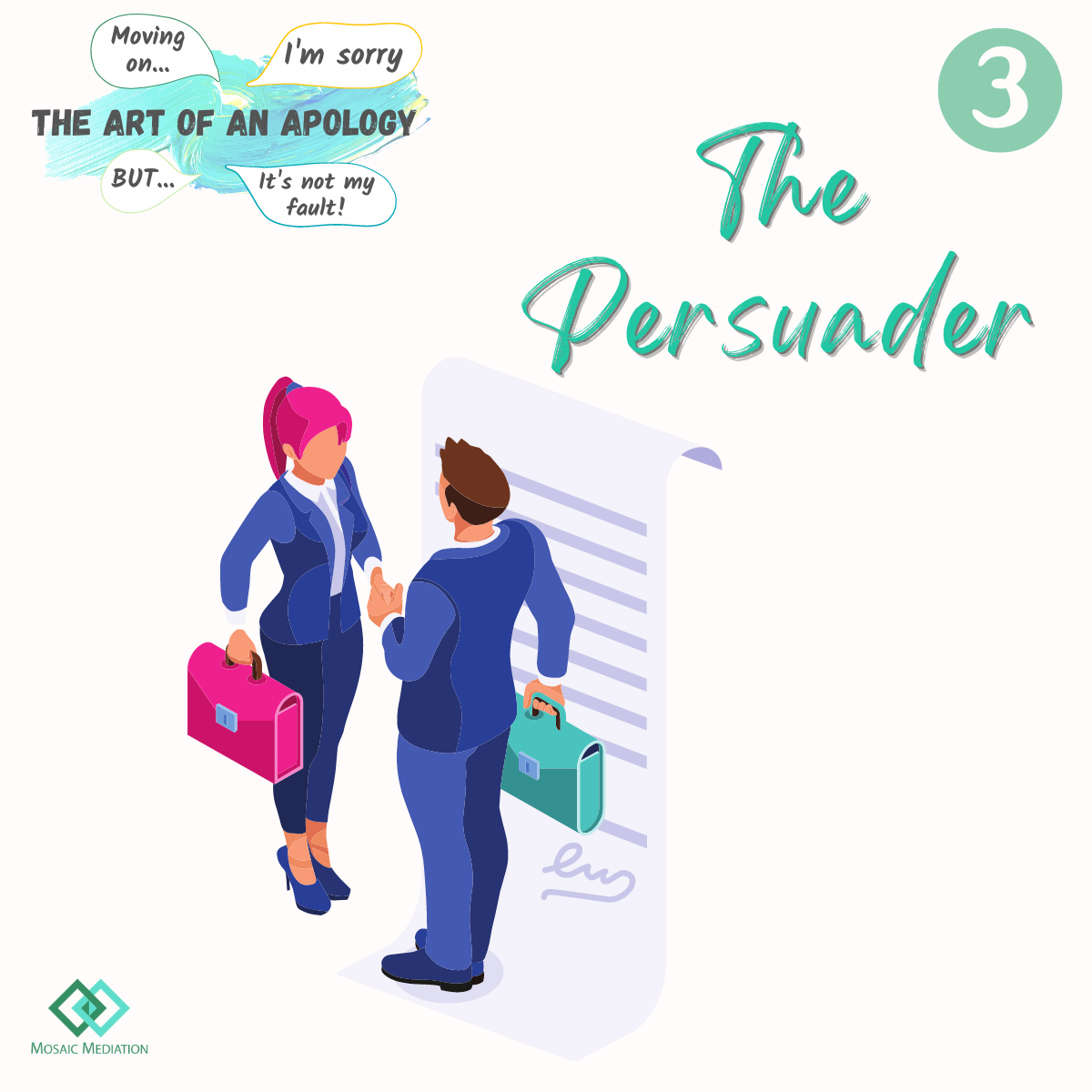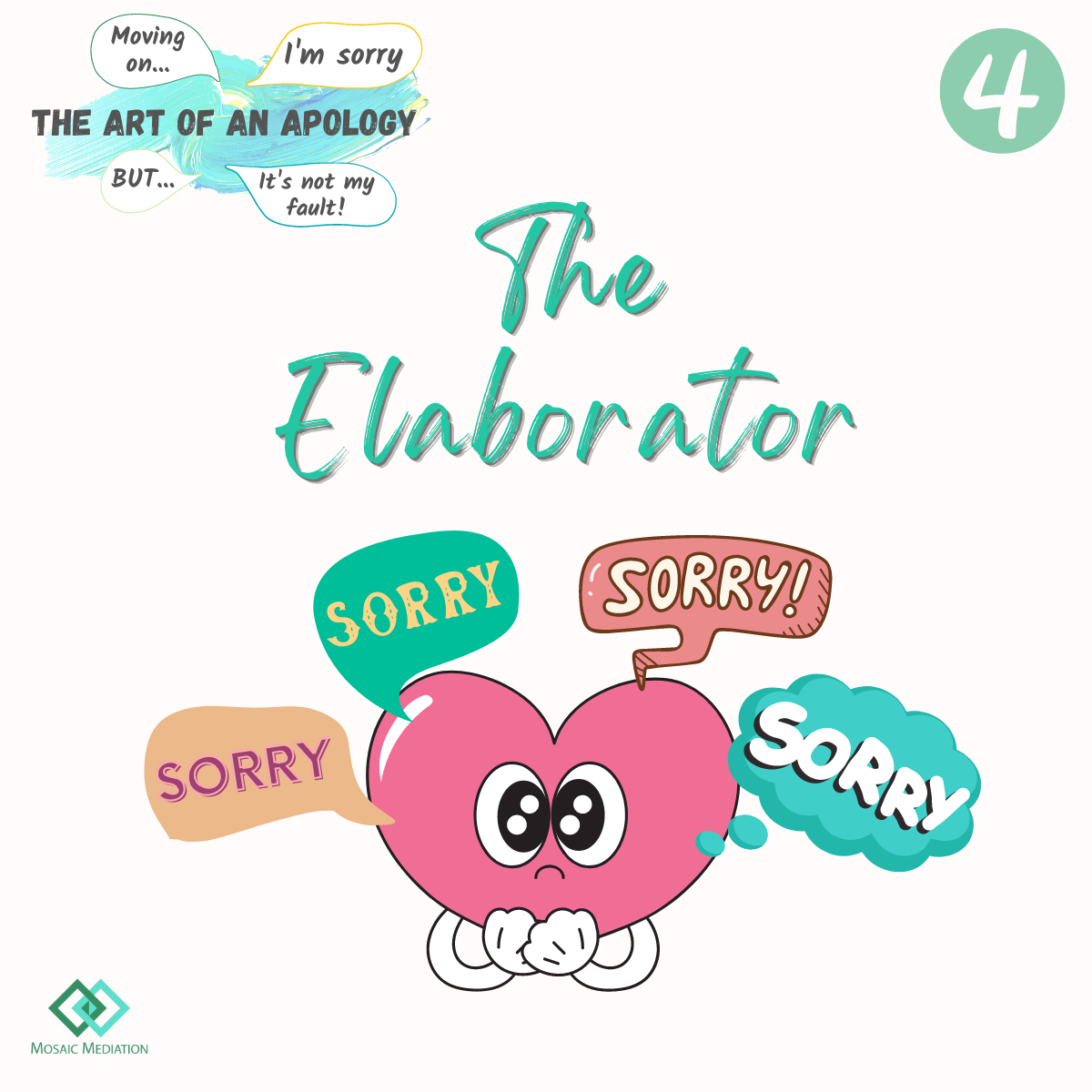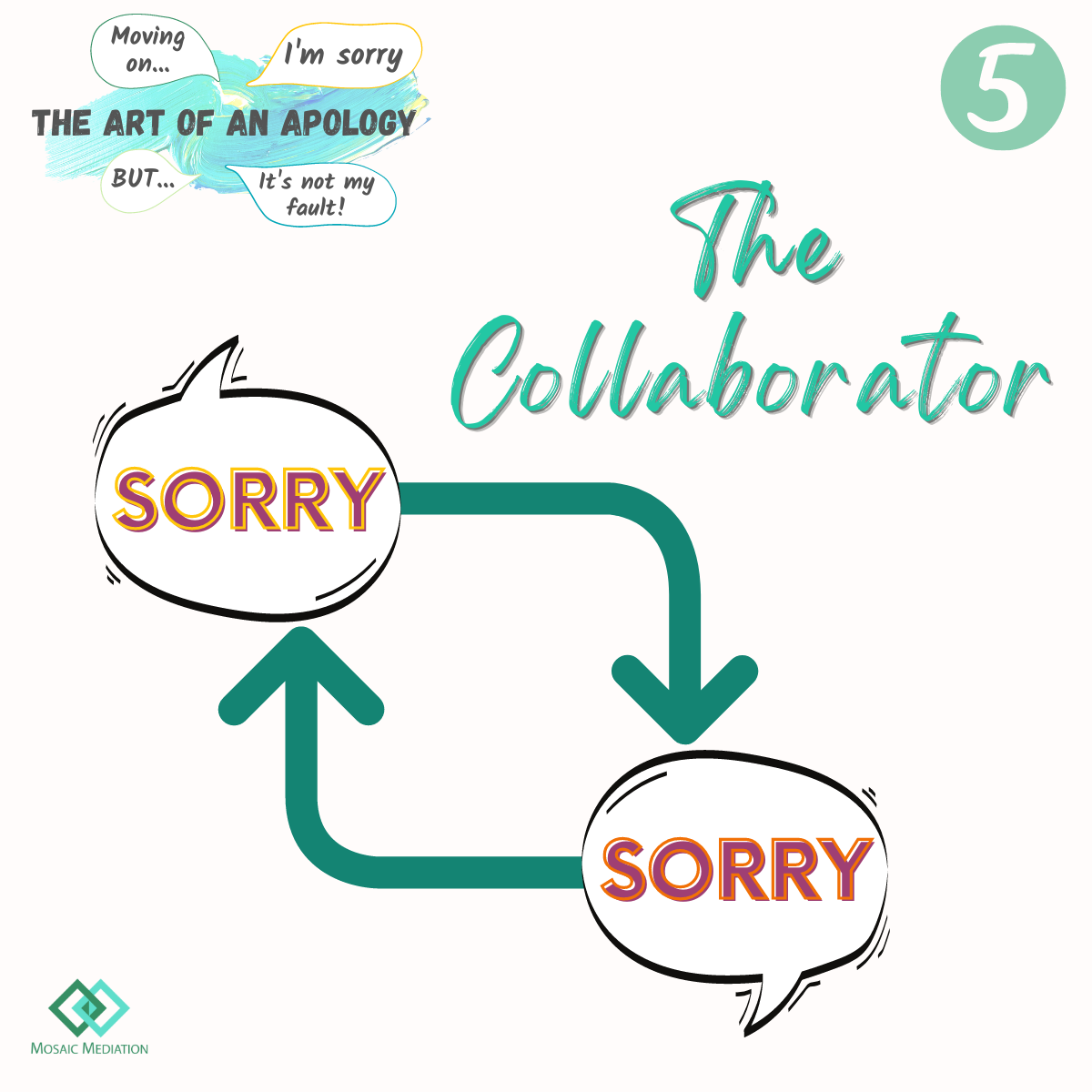Tips on restoring peace by apologising well
“Sorry” is a word that has a bit of a mixed reputation, doesn’t it?
Some people think it’s important and necessary, while others see it as a meaningless word. And, unfortunately, so many people have a negative opinion of saying ‘sorry’ that they might avoid using it entirely.
I would argue that it’s not the word itself, but how you use it!
So many times, I see individuals in a mediation who really struggle to believe the other person’s apology. And, I would say it is due to a mixture of things:
· Someone’s own history with broken trust and insincere apologies.
· The ‘apologiser’ not feeling remorseful.
· The ‘apologiser’ committing an apology fallacy – a sincere apology that fails to be seen as sincere.
This third situation is the one that I have spent a lot of time thinking about and talking through in different ways with coaching clients and mediation parties. In fact, I thought about it so much that I created an e-learning course from it, called the ‘Art of an Apology’.
In this course, I came up with 6 Apologiser Fallacies:
1. The Steam Train
2. The Shirker
3. The Persuader
4. The Elaborator
5. The Collaborator
6. The Demonstrator
All of these come from people who do want to apologise but they go about it in a way which doesn’t help the situation, the person they are apologising to, or them. Effectively,
they stand in the way of their apology feeling as genuine and sincere as it could.
Have any of the above apology fallacies resonated with you? Perhaps, someone has apologised to you in one of the above ways before and now the sense of dissatisfaction with their apology makes sense, or maybe you can reflect on times when you have apologised in one of these ways and why maybe that didn’t lead to total resolution of an issue?
What I hope to demonstrate through this article is that
apologies really do matter. It may leave you feeling like it’s become more complicated, so I will leave you with this:
Remember WHY you are apologising in the first place and what you hope to achieve through doing it.
If it starts focusing on you rather than the other person, then you are more likely to react to the feelings of discomfort and guilt, which lead to rushing or wanting to be consoled by their apology. If it is about ticking the ‘apology’ box, then you may not appreciate the need for total clarity and follow-up behaviour.
But if you remember why you are doing it, you are more likely to come across as sincere, accountable, and worth of someone extending their trust again.
For more information on conflict resolution services, including mediation, training, coaching or advisory services, go to
www.mosaicmediation.co.uk. To access the mini e-learning course on the ‘Art of an Apology’, click HERE. Emma Jenkings is a qualified and experienced workplace mediator, conflict coach, assertiveness coach, DISC practitioner and communication skills trainer.


